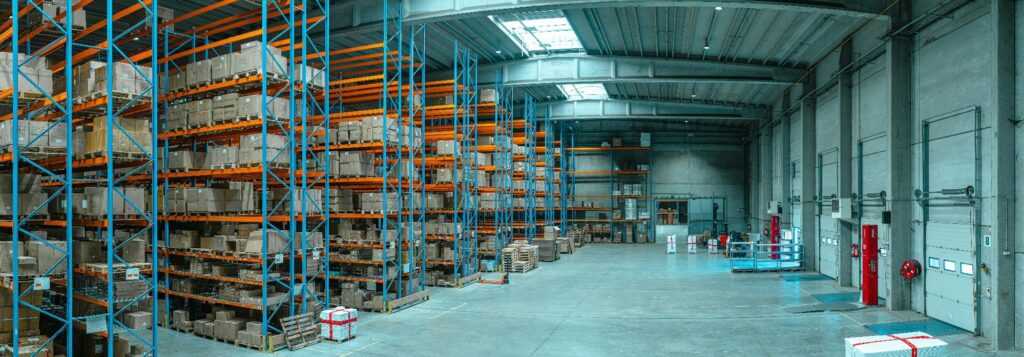Efficiency, agility, and visibility are the trifecta for a successful supply chain in today’s complex business environment. At the heart of achieving these objectives is the implementation of robust Enterprise Resource Planning (ERP) systems that can seamlessly integrate various functions within an organization. The right ERP solution can provide a unified view of operations, improve decision-making, and ultimately lead to substantial cost savings and enhanced customer satisfaction. Keep reading to explore how an ERP system can transform different aspects of your supply chain.
Understanding ERP and Its Impact on Supply Chain Efficiency
ERP software is a powerful tool that centralizes business operations, ensuring seamless data flow across departments. This is especially crucial in supply chain management, where real-time data improves efficiency by eliminating silos, reducing errors, and enhancing decision-making. With better access to accurate information, supply chain managers can boost productivity and respond quickly to operational needs.
Automation is another key advantage of ERP software, streamlining tasks like purchase order creation and invoice processing to speed up the supply chain. It helps businesses stay compliant with industry regulations, reducing the risk of costly legal issues. From manufacturing to healthcare, ERP solutions enhance efficiency and compliance across various industries.
Streamlining Inventory Management with ERP Systems
Inventory management is a critical aspect of supply chain optimization, and an ERP system provides real-time visibility into inventory levels, enabling organizations to maintain optimal stock without excessive holding costs. This helps reduce overstocking and stockouts, which can disrupt the supply chain and affect customer satisfaction.
ERP systems also enable precise inventory tracking and management, allowing managers to make adjustments that optimize inventory turnover ratios, leading to improved cash flow and lower costs. They also facilitate a proactive approach to inventory management, using historical data to forecast future needs with greater accuracy, ensuring better preparedness for market fluctuations and seasonal changes. ERP systems improve coordination between departments, allowing for more effective collaboration and reduced resource wastage.
Enhancing Visibility and Collaboration Across the Supply Chain
ERP systems provide vital visibility across all stages of the supply chain, promoting efficiency and responsiveness. They promote transparency within an organization, including suppliers, logistics providers, and customers, synchronizing activities and meeting customer demands.
Real-time data from ERP systems breaks down communication barriers and enhances decision-making, addressing disruptions and pivoting in response to market changes. ERP software encourages a more integrated supply chain, building stronger relationships with third-party vendors and partners. Customer satisfaction is central to any supply chain operation, and ERP systems provide comprehensive visibility into inventory, shipping, and service levels, enhancing trust and long-term business relationships.
Leveraging ERP for Improved Demand Forecasting and Planning
Demand forecasting and planning are crucial for a well-tuned supply chain. ERP systems provide advanced tools to analyze historical sales data, market trends, and customer behavior to predict future demand, aiding supply chain managers in creating more accurate strategic plans. ERP systems also directly influence inventory control, allowing businesses to optimize manufacturing schedules and procurement processes, minimizing waste and reducing stockout risks.
Integration with CRM systems enhances demand planning by incorporating customer-specific data, ensuring customer-centric strategies. ERP also allows managers to simulate market situations and assess their impact on supply chain processes, enabling them to develop contingency plans and better prepare for potential events. ERP systems enhance supply chain efficiency and adaptability to dynamic market conditions.
Integrating ERP with IoT and AI for a Smart Supply Chain Network
ERP systems are being significantly enhanced when integrated with emerging technologies like the Internet of Things (IoT) and Artificial Intelligence (AI). IoT devices can provide real-time operational data, enhancing monitoring capabilities and providing greater control over supply chain assets. This integration leads to a new era of operational efficiency. AI can automate complex decision-making processes, detect patterns, and analyze vast amounts of data, suggesting actionable insights for continuous improvement in supply chain activities.
Combining ERP with IoT and AI can also improve asset tracking and management, enabling real-time monitoring of machinery and inventory, minimizing downtime and ensuring smooth supply chain operations. The synergy of IoT and AI with ERP transforms traditional supply chains into smart networks capable of self-regulation and automation.
Overall, the integration of ERP systems into supply chain management is a transformative strategy that can lead to increased efficiency, improved customer satisfaction, and significant cost savings. By leveraging the latest technological advances, businesses can create robust, agile supply chains that are well-equipped to succeed in the global market.

